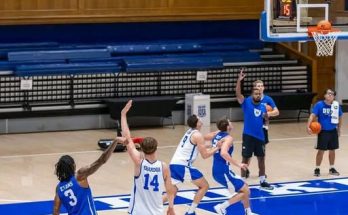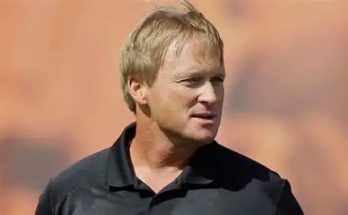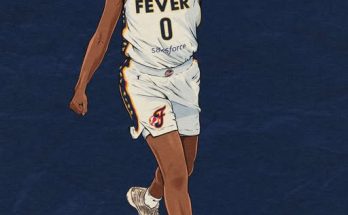Conor Sheary has never been one to seek the spotlight, but as the New York Rangers extended him a professional tryout (PTO) ahead of the 2025-26 NHL season, the veteran winger finds himself at the center of an intriguing comeback narrative. Once a critical cog in two Pittsburgh Penguins Stanley Cup runs, Sheary now faces one of the most defining moments of his career: proving he still belongs in a league that has become faster, younger, and more competitive than ever. While tryout agreements don’t guarantee a contract, the Rangers’ decision to bring Sheary into their training camp is as much a nod to his past success as it is a recognition of what he might still offer—experience, two-way versatility, and perhaps most importantly, leadership in a locker room full of young talent looking to take the next step.
At 33, Sheary is no longer the speed demon who once found success alongside Sidney Crosby in Pittsburgh. But what he may have lost in quickness, he’s gained in hockey IQ, poise, and adaptability—traits that could be invaluable to a Rangers team still searching for consistency across all four lines. New York’s forward depth has been a question mark for the last few seasons. Despite their potent top-six, their bottom-six rotation has often struggled to generate offense, suppress opposing attacks, or shift momentum when it matters. That’s where Sheary enters the picture. While the casual fan may gloss over a PTO as insignificant or just a formality, those within the hockey world understand its weight. It’s a no-risk, high-reward opportunity—for the team and for the player.
Sheary is no stranger to working for his opportunities. Undrafted out of the University of Massachusetts Amherst, he carved out a reputation as a gritty, undersized forward with deceptive speed and a knack for scoring timely goals. His 53-point campaign in 2016-17 remains the high-water mark of his career, but even as his offensive numbers dipped in subsequent years, Sheary continued to bring energy and discipline to every shift. Whether it was with the Penguins, Sabres, or Capitals, coaches trusted him to play in all situations—five-on-five, power play, and penalty kill—because he rarely made the kind of mental errors that cost teams games.
What makes Sheary’s PTO with the Rangers so compelling is the context in which it arrives. After another early playoff exit, Rangers General Manager Chris Drury and Head Coach Peter Laviolette know the pressure is on to build a roster capable of going deep into the postseason. The team’s veteran core—Artemi Panarin, Mika Zibanejad, Chris Kreider, and Jacob Trouba—aren’t getting younger. The window to win is open, but it won’t stay that way for long. Adding Sheary to the mix provides a potential upgrade in bottom-six experience and could be the kind of subtle move that pays dividends come April.
Of course, Sheary will have to earn his spot. Training camp is no charity event, and there will be no guarantees. He’ll be competing with younger forwards eager to cement their place in the NHL, including the likes of Brennan Othmann and Will Cuylle, both of whom are seen as potential long-term solutions in New York’s middle-six. But that’s where Sheary’s edge comes into play. He’s been through the grind of multiple NHL training camps, knows what coaches are looking for, and understands how to make an impact in limited minutes. He doesn’t need to light up the scoreboard to earn a deal—he just needs to show that he can be a responsible, reliable contributor who elevates the play of those around him.
From the Rangers’ perspective, this PTO is a calculated move that adds veteran insurance without locking the team into a long-term financial commitment. If Sheary impresses, he could easily be signed to a one-year, low-cost deal—a bargain for a player with over 500 NHL games and two Stanley Cups under his belt. If he doesn’t meet expectations, the organization can part ways with no strings attached. It’s a pragmatic approach in an era of tight salary caps and heightened roster flexibility, and it speaks to the front office’s willingness to think outside the box.
Sheary’s recent NHL track record adds another layer to this story. His last full season with the Washington Capitals in 2023-24 saw him post 27 points in 68 games—respectable numbers for a bottom-six forward, especially one who often started in the defensive zone and was tasked with tough matchups. More importantly, he remained healthy, something that can’t be said for several of the Rangers’ depth forwards over the past few seasons. Durability and consistency are quietly coveted traits in today’s NHL, and Sheary has demonstrated both.
Beyond the stat sheet, there’s a cultural dimension to Sheary’s potential impact. He’s known league-wide as a consummate professional—humble, hardworking, and team-first. Those are the kinds of personalities that often make the biggest difference in long playoff runs. When the grind sets in, when injuries mount, and when adversity hits, having steady voices in the room can be the glue that keeps a team together. Sheary might not wear a letter on his chest, but his presence could carry the weight of a leader, especially among younger players navigating their first full NHL season.
For Sheary, this tryout may represent the last significant pivot in his professional journey. If he earns a contract and performs well, he could extend his NHL career by another year or two, potentially helping a contender in the twilight of his career. If not, he may have to consider alternate routes—be it a two-way contract in the AHL, a European league opportunity, or retirement. It’s a reality that many veteran players face, and Sheary is no exception. But few would bet against a player who has spent his entire career proving doubters wrong.
This also speaks to a larger trend in the NHL, where experienced veterans are finding fewer guaranteed contracts and more tryouts as teams invest heavily in youth and speed. While this approach often works, it can also lead to a deficit in playoff-savvy grit and professionalism. That’s where veterans like Sheary can offer value that transcends analytics. He knows what it takes to win, what it means to be accountable, and how to keep morale high in the face of adversity.
Fans in New York should keep a close eye on his preseason performances. His ability to adapt to Laviolette’s system, mesh with potential linemates, and make smart plays in both ends will be critical. It’s not about flash or flair for Sheary—it’s about doing the little things right, every shift, every game. If he does that, there’s a strong chance he’ll earn a spot on the Rangers’ opening night roster and possibly make a deeper impact than anyone expected when his PTO was first announced.
In many ways, Sheary’s journey mirrors the ethos of the sport itself—hard work, resilience, and seizing every opportunity. As the Rangers continue to build toward their championship aspirations, his story adds a meaningful subplot to the upcoming season. Whether it results in a contract or not, Conor Sheary’s presence in New York will serve as a reminder of what persistence and professionalism can still achieve in today’s NHL.



